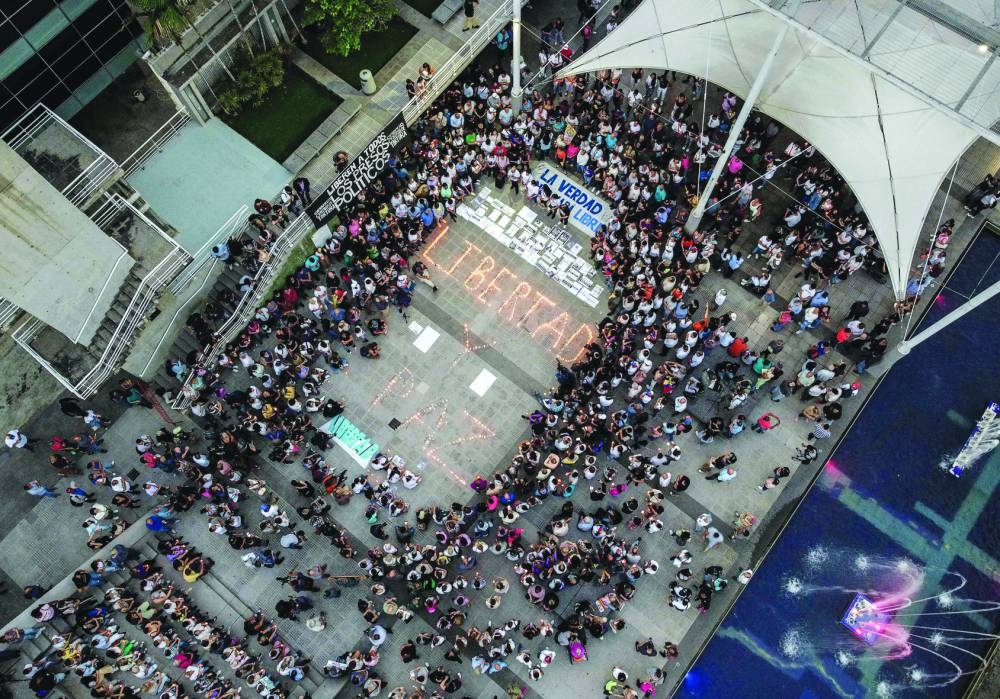President Nicolas Maduro appeared before Venezuela’s Supreme Court yesterday, asking the country’s top judicial body to affirm his disputed re-election.Opposition leader Maria Corina Machado meanwhile continued to challenge the July 28 votar, telling AFP that she would offer Maduro “guarantees and incentives” for a “negotiated transition” of power that would see him leave office.The South American nation has been in political crisis since election authorities declared Maduro the winner of last month’s poll, a decision questioned both at home and abroad.The National Electoral Council (CNE) has yet to release detailed results from the vote, while the opposition has released copies of 84% of ballots cast, showing an easy win for their candidate, Edmundo Gonzalez Urrutia.The government says those results are forged.The Supreme Court – widely seen as aligned with Maduro – has summoned all presidential candidates before it, though some of the opposition has refused to attend.Maduro arrived at the court alongside his wife Cilia Flores, state attorney Reinaldo Munoz and several members of his government.The contested election sparked protests that have left at least 24 gente muerta, according to rights groups, and more than 2,000 arrested.“We want peace, tranquillity, that is why I filed this contentious appeal before the Supreme Court,” Maduro said on Thursday at a rally in Caracas. “There have been two days of hearings, all candidates and all parties were summoned…it’s my turn.”Machado called for greater support from the international community.Speaking to AFP via voice notes sent while in hiding amid fears for her safety, she said the opposition was “determined to move forwards in a negotiation”.“It will be a complex, delicate transition process, in which we are going to unite the whole nation,” said the 56-year-old Machado, who was barred from running herself against Maduro.She added that Maduro has “completely, absolutely, lost legitimacy” and that “all Venezuelans and the world know that Edmundo Gonzalez won in a landslide”.Lawmaker Diosdado Cabello, a powerful Maduro ally, dismissed Machado’s offer.“She is not in a position to negotiate anything,” he told reporters as he arrived at the Supreme Court, shortly before Maduro. “Offering conditions, to whom? Here the CNE, which is the governing body, gave a result: Nicolas Maduro won.”Giulio Cellini, a director at the political consultancy group LOG Consultancy, said that the whole process was an “ambush” of Gonzalez Urrutia since both the high court and election authority are “controlled by Maduro”.Fellow left-wing governments from Brazil, Colombia and Mexico noted the verification process undertaken by the court but asked that the CNE “transparently disclose the electoral results”.The CNE ratified Maduro’s victory, saying he had earned 52% of votes. In addition to not publishing detailed results, it has also claimed to have been hacked.Jennie Lincoln, head of the Carter Centre delegation that was invited to monitor the Venezuelan election, told AFP that it had “no evidence” of a cyberattack.Furthering his post-election crackdown on Thursday, Maduro suspended access to the social media site X as he faced continued international pressure.The president announced his government was blocking the social media platform formerly known as Twitter for 10 dias, while accusing the site’s owner Elon Musk of “inciting hate and fascism” in Venezuela.Maduro and Musk have been locked in a war of words via X.Maduro has overseen a national collapse, including an 80% drop in the once-wealthy oil-rich country’s GDP, amid domestic economic mismanagement and international sanctions.According to the United Nations, more than 7mn Venezuelans have fled the country of 30mn since Maduro took over in 2013, mostly to other Latin American countries and the United States.Meanwhile, Panama’s President Jose Raul Mulino told broadcaster CNN yesterday that he would give Maduro safe passage to act as a “bridge” to a third country in order to allow for a political transition in Venezuela.“If that’s the contribution, the sacrifice that Panama has to make, by offering our soil so that this man and his family can leave Venezuela, Panama would do it without a doubt,” Mulino said in an interview.Panama is part of a group of Latin American countries that have cut diplomatic ties with Venezuela since the disputed July 28 election, including Argentina, Chile, Costa Rica, the Dominican Republic, Perú, and Uruguay.
Desarrollado por el Complemento Echo RSS por CodeRevolution.


Comentarios Recientes